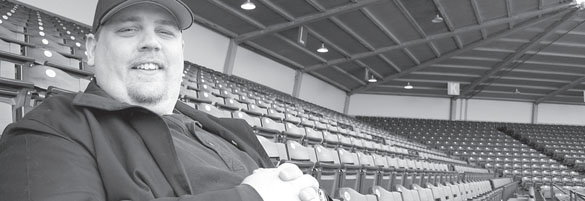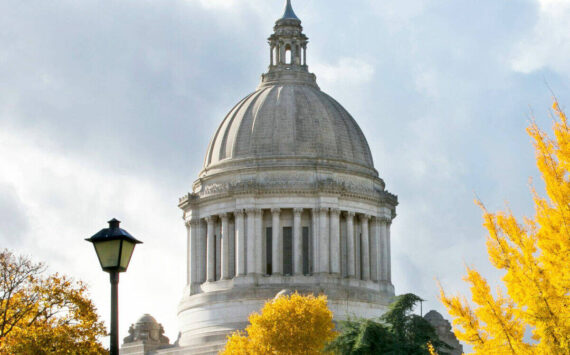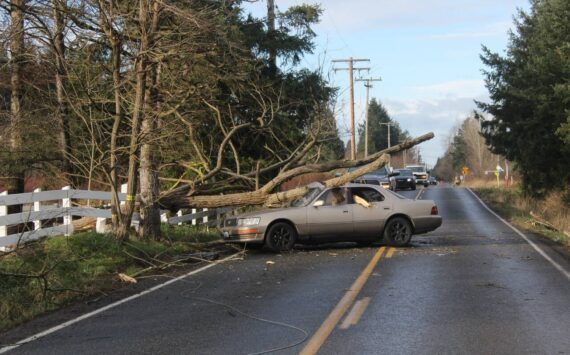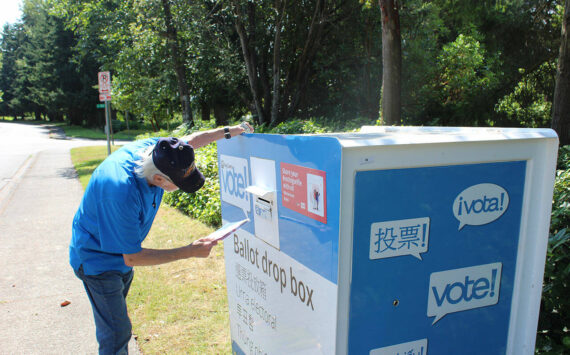It’s hard to believe, with temperatures still chilly, that spring training ends this week, the Seattle Mariners take the field next week, and baseball season is upon us.
While most of Western Washington will focus on the Mariners and superstar center fielder Ichiro Suzuki and incoming ace Erik Bedard, one local man will have his eyes on the home-town nine: the Pacific Coast League Tacoma Rainiers.
Thirty-four-year-old Justin Carleton runs No Rhubarb!, a year-old fan blog that covers all things Rainiers. “I’ve always been, and always will be, a baseball fan more than I am a blogger,” explains Carleton, who is a walking Wikipedia of minor league baseball trivia. “I had a general information blog previously, but it always ended up going to baseball. If I stopped blogging tomorrow, I would still go to baseball games. It was just sort of a nice circumstance that I was able to find a baseball team nobody else was blogging about.”
Though Carleton at times casts a critical eye on the team, it’s all meant out of love. Through his writing, he seems to feel the team’s pain of being in the Mariners’ shadow. “It’s a minor league team in a major league area,” he says. “If you go to Oklahoma City, Redhawk games are on TV. They are part of the evening news sportscast. There are times the Rainiers don’t even get on the all-sports show for Northwest Cable News. That, unfortunately, is something the team doesn’t have much control over.”
No Rhubarb’s most popular feature last year was a weekly photograph (with biting commentary) of some of the most ridiculous minor league mascots from across the country.
The blog’s name is linked to mascots. “No Rhubarb” is a play on an old baseball term — “No Pepper” — which is seen on some backstops at major league stadiums, and refers to a small-group, batting-and-fielding warm-up exercise. It also speaks to what Carleton describes as a “bemused dislike” of the Rainiers mascot Rhubarb.
“Mascots all across minor league baseball, especially Rhubarb, just freak me out,” he explains. “The whole idea of a giant furry reindeer being entertaining is sort of terrifying to me.”
The blog has been noticed (and left alone) by Rainiers ownership (as a side-note, the Rainiers were purchased in 2006 by Schlegel Sports, which gave Carleton something else to cover). “I look at it every now and then,” says team spokesperson Geoff Corkum. “It’s pretty funny and interesting. It’s not always bad about Rhubarb. But still, how can you not like Rhubarb?”
The Index recently met Carleton to discuss his blog, the Rainiers, the history of minor league baseball in Tacoma, and his thoughts on the team’s new ownership.
TACOMA DAILY INDEX: How long have you been running No Rhubarb, and how did it start?
JUSTIN CARLETON: It started about a year ago. I was blogging off and on for three or four years. Initially, I was doing a lot of stuff on the Seattle Mariners. I grew up around here. I was a big Mariners fan. When we moved to Tacoma, my wife and I made a real attempt to get more locally involved. I had an idea one day. You know, there are hundreds of blogs on the Mariners, most of them a lot better than mine, but there aren’t a lot of blogs about minor league teams. So I thought I would go ahead and give it a shot with the Rainiers. My wife and I had gone to several games prior, and it seemed like it would be a nice little niche.
INDEX: Were you knowledgeable of the team, in terms of its history and current players?
CARLETON: Somewhat. It’s difficult. Players are really hard to track on a minor league team because they move around a lot. I was aware of the history, that the team had been founded in the 1960s. My father grew up in Tacoma and listened to some of the early Tacoma Tiger games. Because they were lucky enough to be part of the Oakland Athletics organization for a long time, they had truly great players. Mark McGwire got his start here. Jose Canseco got his start here. Jason Giambi, too. When they switched over to Seattle, they got Alex Rodriguez. In fact, somewhere, I actually have a baseball card of Alex in his Rainiers jersey. From then, it was just learning what I could. I did a lot of research. The first thing I did for the blog was figure out the history of Tacoma baseball. If you actually go back, there has been a baseball team in Tacoma for 110 years. They were part of a rival of the Pacific Coast League, which is what they are in now, that went out of business. They held on in the Lower Northwest League, which is an A-Ball division where Everett, Yakima, and Bend, Ore., play, until the late-1960s. There are some pictures you can look up in the Tacoma Library. The first baseball park that was in Tacoma was over on 15th Street in the Hilltop. It was actually called Hilltop Park.
INDEX: What has been your style or tone with the blog? When someone gets called up to the Mariners, or if a decision is made regarding the team, do you ever question it — ‘What are these people doing?’
CARLETON: Oh, yeah. All last year on the blog, the Rainiers were great with a kid named Adam Jones. I nicknamed him ‘Our Favorite Rainier.’ I fervently believe Adam Jones is going to be a star. He is a tremendous defensive player, has great power, has a great arm. He’s a very athletic kid. Ken Griffey, Jr. was like that. All throughout last year’s blog, I kept saying, ‘It’s time for our favorite Rainier to become our favorite Mariner.’ They finally did call him up, and sat him on the bench for three months. That ticked me off. But they traded him this year, right before spring training started. They traded him for a pitcher named Erik Bedard, who is a very good pitcher and may well contend for the Cy Young Award this year. But the problem is that it’s the type of trade the Mariners would do if they were one step away from the World Series, and they’re not. They’re not a particularly good team, and he’s not going to get them over the hump. Adam Jones is going to be a great player, and a cheap player, for a long time. That was tremendously disappointing.
INDEX: As a fan, say the Rainiers are doing really well, and they have a lot of great players, and then suddenly they are called up to the Mariners. How do you get attached to the team? What purpose is there to be a fan of a minor league team if they are at the whim of the major league team?
CARLETON: It’s difficult because when you are dealing with a minor league team, you know the expressed purpose of the minor league team is to feed the major league team. It’s hard to get really attached to a player. Minor league baseball is kind of like college football. You root for the front of the jersey, not the back. You’re rooting for the team, not necessarily the player. As a Rainiers fan, it would suck if the Rainiers were doing really well and the Mariners called up all their guys. That happens to a lot of minor league teams. That’s what a minor league team is for. Unfortunately, there is really no way around it. It also depends if you’re a fan of the big league club, too. In Tacoma, if you’re a fan of the Rainiers, you’re probably a fan of the Mariners, as well.
INDEX: For a fan, what is the difference between the experiences at a Mariners game versus a Rainiers game?
CARLETON: The biggest one you are going to deal with is the price and the sheer scope of it. If you are going to a Rainiers game, you are going to park for five dollars. To get the same parking spot in downtown Seattle, near Safeco Field, it’s going to be 40 dollars. Going to a Rainiers game is smaller, it’s more intimate, there are going to be fewer fans. You may very well meet a member of the team. Last year, the Rainiers started having a couple guys from the team come out in front, sign autographs, say hello, and take pictures with the kids. You’re never going to find that with a big league club. At a Rainiers game, the stadium is small and old. They do a fine job of keeping it up, but it looks small and old. If you go to Safeco Field in Seattle, it’s a palace. Like most of the new baseball parks, Safeco Field is magnificent. Something I always notice is the difference in billboards. Go to Safeco Field, and it’s Starbucks, Boeing, and Microsoft. Go to a minor league park, and it’s the guy whose tire shop is down the street. Also, the jump between Triple-A and the major leagues may be the largest gulf next to going from high school to the minor leagues. Guys are major leaguers because they should be. Aside from a couple guys on each minor league time, they’re not going to be major-league players. So there is a gulf in the actual quality of the baseball played. That said, when you find a great player on a minor league team, it can be really magical. That’s why watching Adam Jones everyday last year was a joy. You could see this was a kid that was going to be in the show for a long time.
INDEX: What do you think of the new ownership, and what impact has new ownership had on the team in a short amount of time?
CARLETON: First of all, I like them. While it’s always nice to have local ownership, they took over a franchise that was in trouble. The previous ownership group, which was a local owner, was basically trying to sell the team for many years. Their idea of marketing was putting a sign up that said, ‘There’s baseball tonight,’ and that was about it. The Schlegel guys came in really late in the game last year. They didn’t have a whole lot to work with, but they did pretty well. Unfortunately, they have a long way to go. Their issue is going to be the stadium itself. Cheney Stadium is old. It is now the oldest stadium in the Pacific Coast League that has not been completely refurbished. The City of Tacoma put a coat of paint on it last year. They put up a new facade. They got a couple million dollars from the state. In Albuquerque, they tore down the entire thing and re-built a brand new stadium. Same thing in Portland, Ore. If you took a picture of all the ballparks in the Pacific Coast League and looked at Tacoma, you would see Cheney Stadium doesn’t match up well with the other parks. The issue Tacoma is always going to have is that it’s half-an-hour away from the big league club. Minor league baseball is never going to be as important as it is to other cities. In Albuquerque, it’s the only game in town. In Tacoma, it becomes a question of how much they can do with the stadium itself.
INDEX: What would you like to see the new owners do with the team?
CARLETON: They would never do it, but my best-case scenario would be to tear down Cheney Stadium, not rebuild on that site, and find a place where they could go back downtown or back down to the Hilltop. Be closer to where people are. Baseball is meant to be downtown. For all of baseball’s romanticizing itself as the sport being born on the plains — this ‘Field of Dreams’ kind of stuff — baseball was built in downtown New York. It was built in Manhattan. It moved out of Manhattan when it moved to Queens. Baseball stadiums, especially major league teams, are going back to the downtown core. I would love to see them find a place where they could play downtown. Obviously, it’s not going to happen. It’s an ungodly amount of money, and there’s not the space. But they are going to have to do something with the stadium.
For more information about Carleton and No Rhubarb, visit rainiersblog.com.


Todd Matthews is editor of the Tacoma Daily Index and recipient of an award for Outstanding Achievement in Media from the Washington State Department of Archaeology and Historic Preservation for his work covering historic preservation in Tacoma and Pierce County. He has earned four awards from the Society of Professional Journalists, including third-place honors for his feature article about the University of Washington’s Innocence Project; first-place honors for his feature article about Seattle’s bike messengers; third-place honors for his feature interview with Prison Legal News founder Paul Wright; and second-place honors for his feature article about whistle-blowers in Washington State. His work has also appeared in All About Jazz, City Arts Tacoma, Earshot Jazz, Homeland Security Today, Jazz Steps, Journal of the San Juans, Lynnwood-Mountlake Terrace Enterprise, Prison Legal News, Rain Taxi, Real Change, Seattle Business Monthly, Seattle magazine, Tablet, Washington CEO, Washington Law & Politics, and Washington Free Press. He is a graduate of the University of Washington and holds a bachelor’s degree in communications. His journalism is collected online at wahmee.com.








